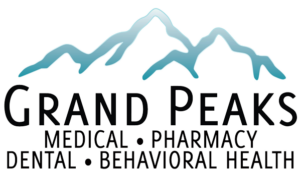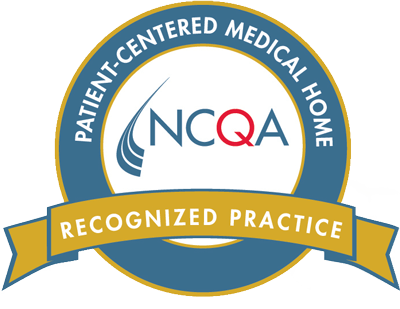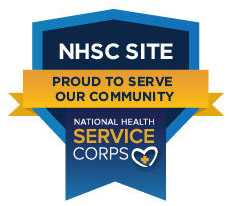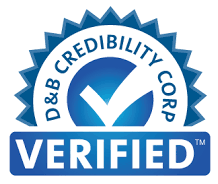Substance abuse is a lot more common than you might think. In fact, the National Council For Behavioral Health conducted a study in which they found that 1 in 12 American adults had a substance use problem. They also found that 1 in 5 had a mental health problem, with which there is considerable overlap with substance abuse disorder.
At our Rexburg Behavioral Health, we consider all of the variables that play into substance abuse disorder and how/why it manifests in an individual.
Like most things, a combination of genes and the environment account for one’s likelihood of developing a drug and alcohol problem. This involves a lot of factors, hence the need for a personalized form of treatment on a case-by-case basis to help our patients on their path to recovery.
 One of the biggest questions in the field of neuropsychiatry is why some people are genetically more prone to addiction than others. This is something we take into consideration at our Rexburg behavioral center.
Drugs activate the brain’s reward system, which sends signals via the neurotransmitter dopamine.
Dopamine plays a key role in how we feel pleasure. It also has a major influence in how we think and plan our actions.
The brain’s reward system is affected by both genes and environmental factors, but here we’ll be focusing on the genetic side.
According to a study published in the scientific journal PNAS, researchers have discovered a small infectious agent—more specifically, an RNA virus called human endogenous retrovirus-K HML-2 (or simply HK2 for short)—which can integrate itself into a gene and affect the activity of dopamine.
Not surprisingly, this viral RNA integration is associated with drug addiction, as it is found more often in those in those with substance abuse disorders.
The bottom line is that for many people whom we treat at our Rexburg behavioral center, addiction and substance abuse is linked to genetic factors over which they have no control. This is not to say, however, that the problem cannot be treated and managed.
One of the biggest questions in the field of neuropsychiatry is why some people are genetically more prone to addiction than others. This is something we take into consideration at our Rexburg behavioral center.
Drugs activate the brain’s reward system, which sends signals via the neurotransmitter dopamine.
Dopamine plays a key role in how we feel pleasure. It also has a major influence in how we think and plan our actions.
The brain’s reward system is affected by both genes and environmental factors, but here we’ll be focusing on the genetic side.
According to a study published in the scientific journal PNAS, researchers have discovered a small infectious agent—more specifically, an RNA virus called human endogenous retrovirus-K HML-2 (or simply HK2 for short)—which can integrate itself into a gene and affect the activity of dopamine.
Not surprisingly, this viral RNA integration is associated with drug addiction, as it is found more often in those in those with substance abuse disorders.
The bottom line is that for many people whom we treat at our Rexburg behavioral center, addiction and substance abuse is linked to genetic factors over which they have no control. This is not to say, however, that the problem cannot be treated and managed.
 Those who have suffered from physical or mental abuse, especially as children, are at a higher risk of developing a substance use disorder.
As stated above, drugs work on the brain’s reward system, and the subjective feelings of pleasure and happiness induced by one or a variety of drugs offers temporary relief from those struggling with PTSD, anxiety, depression, and other ordeals that are the lasting results of trauma.
At our Rexburg behavioral center, we help abuse victims who have, as a result of their trauma, developed addictions that have made their lives unmanageable.
Those who have suffered from physical or mental abuse, especially as children, are at a higher risk of developing a substance use disorder.
As stated above, drugs work on the brain’s reward system, and the subjective feelings of pleasure and happiness induced by one or a variety of drugs offers temporary relief from those struggling with PTSD, anxiety, depression, and other ordeals that are the lasting results of trauma.
At our Rexburg behavioral center, we help abuse victims who have, as a result of their trauma, developed addictions that have made their lives unmanageable.
 Early life experiences play a major role in one’s likelihood of developing substance addiction. Certain parenting styles and levels of supervision are big determining factors in one’s later mental development.
Humans learn ways of dealing with stress at an early age, and these strategies often transform into self-destructive behaviors as we enter into adulthood, including drug addiction and alcohol abuse.
Family dynamics such as constant spousal fights, overly authoritarian or avoidant parenting styles, and divorce can cause enough stress in children that they develop various coping strategies which later turn into substance abuse disorder.
In short, when video games, junk food, or simply shutting one’s self in their room are no longer enough to block out the stress of life, it’s easy to turn to drugs and alcohol as the next form of “stress management”.
At our Rexburg behavioral center, we often work with adults who have underlying stress they carry with them from childhood that has contributed to addiction.
Early life experiences play a major role in one’s likelihood of developing substance addiction. Certain parenting styles and levels of supervision are big determining factors in one’s later mental development.
Humans learn ways of dealing with stress at an early age, and these strategies often transform into self-destructive behaviors as we enter into adulthood, including drug addiction and alcohol abuse.
Family dynamics such as constant spousal fights, overly authoritarian or avoidant parenting styles, and divorce can cause enough stress in children that they develop various coping strategies which later turn into substance abuse disorder.
In short, when video games, junk food, or simply shutting one’s self in their room are no longer enough to block out the stress of life, it’s easy to turn to drugs and alcohol as the next form of “stress management”.
At our Rexburg behavioral center, we often work with adults who have underlying stress they carry with them from childhood that has contributed to addiction.
 One of the most difficult factors in breaking addiction is that it can be tied into one’s friend group.
Humans are tribal creatures—we all want a sense of belonging. When your social circle is composed of and held together by substance use, breaking the cycle of addiction can become a lot more difficult and complicated.
In teenagers and younger adults, peer pressure is also a big factor.
At our Rexburg behavioral center, we can provide strategies and support systems that can help individuals out of social circles and situations that contribute to addiction and substance abuse.
One of the most difficult factors in breaking addiction is that it can be tied into one’s friend group.
Humans are tribal creatures—we all want a sense of belonging. When your social circle is composed of and held together by substance use, breaking the cycle of addiction can become a lot more difficult and complicated.
In teenagers and younger adults, peer pressure is also a big factor.
At our Rexburg behavioral center, we can provide strategies and support systems that can help individuals out of social circles and situations that contribute to addiction and substance abuse.
 Social media has great potential to exacerbate mental health struggles in certain individuals.
Many derive a sense of shame and lowered self-esteem as they perceive those on social media to be doing better in life than they are, as most people only post what’s going well in their lives while omitting their problems and struggles. A resulting sense of social shame and isolation can increase substance use.
Beyond social media, the media in general also portrays unrealistic representations of life, including relationships, sex, what constitutes success and meaning, etc. All of these things can give people an unrealistic view of themselves and what it means to be successful in the world.
Movies, shows, and video games typically glorify drug and alcohol use as well, giving people an unrealistic idea of what it means to chronically use drugs and alcohol.
There is also the constant flow of negativity coming from news media which can give people a dismal view of the world.
All of this contributes to stress, negativity, and thus, an increased likelihood of drug and alcohol abuse.
Social media has great potential to exacerbate mental health struggles in certain individuals.
Many derive a sense of shame and lowered self-esteem as they perceive those on social media to be doing better in life than they are, as most people only post what’s going well in their lives while omitting their problems and struggles. A resulting sense of social shame and isolation can increase substance use.
Beyond social media, the media in general also portrays unrealistic representations of life, including relationships, sex, what constitutes success and meaning, etc. All of these things can give people an unrealistic view of themselves and what it means to be successful in the world.
Movies, shows, and video games typically glorify drug and alcohol use as well, giving people an unrealistic idea of what it means to chronically use drugs and alcohol.
There is also the constant flow of negativity coming from news media which can give people a dismal view of the world.
All of this contributes to stress, negativity, and thus, an increased likelihood of drug and alcohol abuse.
 There are some things to keep in mind before setting out on a path to recovery.
There are some things to keep in mind before setting out on a path to recovery.
Genes & Addiction
 One of the biggest questions in the field of neuropsychiatry is why some people are genetically more prone to addiction than others. This is something we take into consideration at our Rexburg behavioral center.
Drugs activate the brain’s reward system, which sends signals via the neurotransmitter dopamine.
Dopamine plays a key role in how we feel pleasure. It also has a major influence in how we think and plan our actions.
The brain’s reward system is affected by both genes and environmental factors, but here we’ll be focusing on the genetic side.
According to a study published in the scientific journal PNAS, researchers have discovered a small infectious agent—more specifically, an RNA virus called human endogenous retrovirus-K HML-2 (or simply HK2 for short)—which can integrate itself into a gene and affect the activity of dopamine.
Not surprisingly, this viral RNA integration is associated with drug addiction, as it is found more often in those in those with substance abuse disorders.
The bottom line is that for many people whom we treat at our Rexburg behavioral center, addiction and substance abuse is linked to genetic factors over which they have no control. This is not to say, however, that the problem cannot be treated and managed.
One of the biggest questions in the field of neuropsychiatry is why some people are genetically more prone to addiction than others. This is something we take into consideration at our Rexburg behavioral center.
Drugs activate the brain’s reward system, which sends signals via the neurotransmitter dopamine.
Dopamine plays a key role in how we feel pleasure. It also has a major influence in how we think and plan our actions.
The brain’s reward system is affected by both genes and environmental factors, but here we’ll be focusing on the genetic side.
According to a study published in the scientific journal PNAS, researchers have discovered a small infectious agent—more specifically, an RNA virus called human endogenous retrovirus-K HML-2 (or simply HK2 for short)—which can integrate itself into a gene and affect the activity of dopamine.
Not surprisingly, this viral RNA integration is associated with drug addiction, as it is found more often in those in those with substance abuse disorders.
The bottom line is that for many people whom we treat at our Rexburg behavioral center, addiction and substance abuse is linked to genetic factors over which they have no control. This is not to say, however, that the problem cannot be treated and managed.
Environmental Factors That Contribute To Substance Abuse Disorder
An environmental factor could be anything from work-related stress to direct abuse by a friend, family member, or stranger. We’ve seen and treated many people at our Rexburg behavioral center who have suffered from environmental factors that contribute to addiction, which typically include:Trauma & Abuse
 Those who have suffered from physical or mental abuse, especially as children, are at a higher risk of developing a substance use disorder.
As stated above, drugs work on the brain’s reward system, and the subjective feelings of pleasure and happiness induced by one or a variety of drugs offers temporary relief from those struggling with PTSD, anxiety, depression, and other ordeals that are the lasting results of trauma.
At our Rexburg behavioral center, we help abuse victims who have, as a result of their trauma, developed addictions that have made their lives unmanageable.
Those who have suffered from physical or mental abuse, especially as children, are at a higher risk of developing a substance use disorder.
As stated above, drugs work on the brain’s reward system, and the subjective feelings of pleasure and happiness induced by one or a variety of drugs offers temporary relief from those struggling with PTSD, anxiety, depression, and other ordeals that are the lasting results of trauma.
At our Rexburg behavioral center, we help abuse victims who have, as a result of their trauma, developed addictions that have made their lives unmanageable.
Social Factors
There are, of course, many social factors that can contribute to one’s development of a substance use disorder, including:Family Dynamics
 Early life experiences play a major role in one’s likelihood of developing substance addiction. Certain parenting styles and levels of supervision are big determining factors in one’s later mental development.
Humans learn ways of dealing with stress at an early age, and these strategies often transform into self-destructive behaviors as we enter into adulthood, including drug addiction and alcohol abuse.
Family dynamics such as constant spousal fights, overly authoritarian or avoidant parenting styles, and divorce can cause enough stress in children that they develop various coping strategies which later turn into substance abuse disorder.
In short, when video games, junk food, or simply shutting one’s self in their room are no longer enough to block out the stress of life, it’s easy to turn to drugs and alcohol as the next form of “stress management”.
At our Rexburg behavioral center, we often work with adults who have underlying stress they carry with them from childhood that has contributed to addiction.
Early life experiences play a major role in one’s likelihood of developing substance addiction. Certain parenting styles and levels of supervision are big determining factors in one’s later mental development.
Humans learn ways of dealing with stress at an early age, and these strategies often transform into self-destructive behaviors as we enter into adulthood, including drug addiction and alcohol abuse.
Family dynamics such as constant spousal fights, overly authoritarian or avoidant parenting styles, and divorce can cause enough stress in children that they develop various coping strategies which later turn into substance abuse disorder.
In short, when video games, junk food, or simply shutting one’s self in their room are no longer enough to block out the stress of life, it’s easy to turn to drugs and alcohol as the next form of “stress management”.
At our Rexburg behavioral center, we often work with adults who have underlying stress they carry with them from childhood that has contributed to addiction.
Friends & Peer Pressure
 One of the most difficult factors in breaking addiction is that it can be tied into one’s friend group.
Humans are tribal creatures—we all want a sense of belonging. When your social circle is composed of and held together by substance use, breaking the cycle of addiction can become a lot more difficult and complicated.
In teenagers and younger adults, peer pressure is also a big factor.
At our Rexburg behavioral center, we can provide strategies and support systems that can help individuals out of social circles and situations that contribute to addiction and substance abuse.
One of the most difficult factors in breaking addiction is that it can be tied into one’s friend group.
Humans are tribal creatures—we all want a sense of belonging. When your social circle is composed of and held together by substance use, breaking the cycle of addiction can become a lot more difficult and complicated.
In teenagers and younger adults, peer pressure is also a big factor.
At our Rexburg behavioral center, we can provide strategies and support systems that can help individuals out of social circles and situations that contribute to addiction and substance abuse.
Social Media (And Media In General)
 Social media has great potential to exacerbate mental health struggles in certain individuals.
Many derive a sense of shame and lowered self-esteem as they perceive those on social media to be doing better in life than they are, as most people only post what’s going well in their lives while omitting their problems and struggles. A resulting sense of social shame and isolation can increase substance use.
Beyond social media, the media in general also portrays unrealistic representations of life, including relationships, sex, what constitutes success and meaning, etc. All of these things can give people an unrealistic view of themselves and what it means to be successful in the world.
Movies, shows, and video games typically glorify drug and alcohol use as well, giving people an unrealistic idea of what it means to chronically use drugs and alcohol.
There is also the constant flow of negativity coming from news media which can give people a dismal view of the world.
All of this contributes to stress, negativity, and thus, an increased likelihood of drug and alcohol abuse.
Social media has great potential to exacerbate mental health struggles in certain individuals.
Many derive a sense of shame and lowered self-esteem as they perceive those on social media to be doing better in life than they are, as most people only post what’s going well in their lives while omitting their problems and struggles. A resulting sense of social shame and isolation can increase substance use.
Beyond social media, the media in general also portrays unrealistic representations of life, including relationships, sex, what constitutes success and meaning, etc. All of these things can give people an unrealistic view of themselves and what it means to be successful in the world.
Movies, shows, and video games typically glorify drug and alcohol use as well, giving people an unrealistic idea of what it means to chronically use drugs and alcohol.
There is also the constant flow of negativity coming from news media which can give people a dismal view of the world.
All of this contributes to stress, negativity, and thus, an increased likelihood of drug and alcohol abuse.
How We Can Help At Our Rexburg Behavioral Center
 There are some things to keep in mind before setting out on a path to recovery.
There are some things to keep in mind before setting out on a path to recovery.
- Substance abuse and addiction disorders are complex, but they are treatable.
- There isn’t a one-size-fits-all solution—each person needs to find a recovery plan that works best for them.
- Quick access to treatment is crucial.
- For treatment to be effective, it must be holistic in nature—the problem is ultimately about more than just the substances themselves.
- Behavioral therapy and counseling are common and effective forms of treatment.
- Medications, when combined with behavioral therapy and counseling, can be hugely beneficial.
- As the patient’s life situation and needs change, so to should the treatment plan—it should be reviewed and modified often.
- During treatment, other possible mental disorders should be addressed or ruled out.
- Any drug use during treatment must be continuously and closely monitored.
Treatments For Drug Addiction At Our Rexburg Behavioral Center Include:
- Behavioral counseling,
- Medication,
- Evaluation and treatment for underlying mental health issues like anxiety and depression,
- Long-term follow-up.
